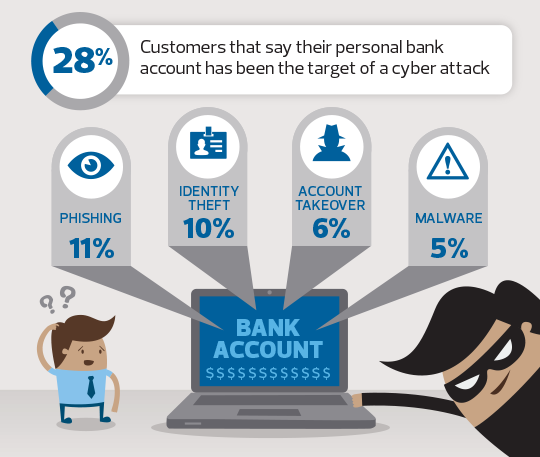
Do you know the frequency of sophisticated attacks on the banking sector is increasing day by day? If so, then the need to develop a comprehensive cyber security program is vital. The banking sector has always been susceptible to banking-related and financial frauds. Subject to technological advancements, banking systems are now connected to the internet and have migrated from physical centers to computer systems and to other platforms like mobile phones.
Although this, like every other technological change, is a development that is aimed to make life easier for the masses, it (like every other technology) comes with disadvantages.
Lack of Cyber Security in the Banking Sector
The biggest disadvantage that the banking sector has been facing subject to being digitized is being vulnerable to cyber attacks. Since the banking platforms are available online, any flaw in their application risks the chance of getting exploited by anonymous attackers throughout the world.
That is, digitization of the financial services industry has opened the gates of anonymous incursions and hence, to myriad information security threats. In order to prevent fake transactions, the banking platforms have taken several security measures like incorporating advanced analytics; but not being in compliance with the set mandatory safety norms hinders the successful implementation of the same (that is, although the measures have been enforced, they fail to provide complete protection).
The last quarter of 2016 witnessed the largest data breach in the history of India’s banking system when about 3.2 million debit cards, belonging to some of the major banks, got hacked using a malware (virus) infection.
Another incident of banks being targeted by the cyber attack was reported at the beginning of 2017 when three Indian banks belonging to the Public sector got infiltrated in order to create fraudulent trade documents. The SWIFT (Society for Worldwide Interbank Financial Telecommunication) systems associated with these banks were discovered to be compromised with the purpose of creating fake documents.
This was not the first time that the SWIFT systems got breached. The Bangladesh Bank Heist that took place in February 2016 occurred because of compromised SWIFT systems as well, and so did a number of other attacks.
Consistently increasing and more streamlined attacks like these (the ones mentioned above) make the banking sector one of the most targeted domains and since it is one of the most crucial ones (dealing with the finances of a country), it is imperative that banks opt for cybersecurity (both at basic and advanced levels).








Leave a comment
Your email address will not be published. Required fields are marked *